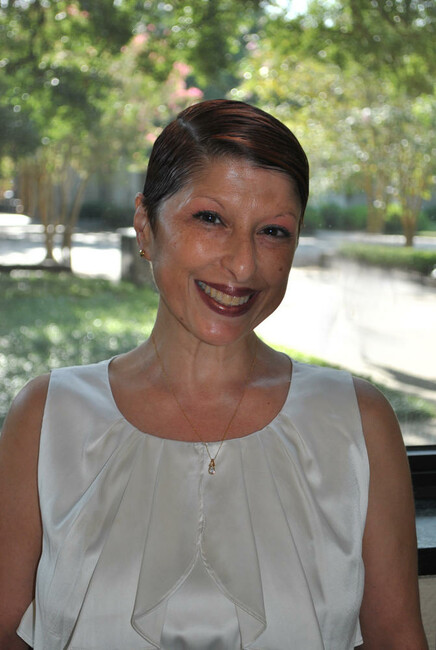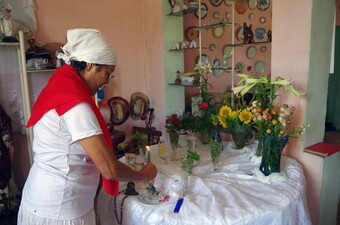
Solimar Otero is the Director of the LSU Program in Comparative Literature, Associate Professor of English, Director of LSU’s Program in Louisiana and Caribbean Studies, and a Folklorist at Louisiana State University.
Solimar Otero is the Director of the LSU Program in Comparative Literature, Associate Professor of English, Director of LSU’s Program in Louisiana and Caribbean Studies, and a Folklorist at Louisiana State University. She received her PhD in Folklore and Folklife from the University of Pennsylvania in 2002. Her research centers on gender, sexuality, Afro-Caribbean spirituality, and Yoruba traditional religion in folklore, literature, and ethnography. She is the author of Afro-Cuban Diasporas in the Atlantic World, (University of Rochester Press, 2010). She is also the co-editor of Yemoja: Gender, Sexuality, and Creativity in Latina/o and Afro-Atlantic Diasporas (SUNY Press 2013), which was selected as a finalist for the 2014 Albert J. Raboteau book prize. Dr. Otero is the recipient of a Ruth Landes Memorial Research Fund grant (2013); a fellowship at the Harvard Divinity School’s Women’s Studies in Religion Program, (2009 to 2010); and a Fulbright award (2001). Her most recent book project, Archives of Conjure: Afrolatinx Residual Transcriptions of the Dead, is about the methodological and ethical implications of studying gender, race, and sexuality in Afrolatinx ritual cultural practice. Her work has also appeared in Transforming Anthropology, The Journal of American Folklore, Western Folklore, Africa Today, The Black Scholar, Atlantic Studies, Phoebe, and The American Journal of Psychoanalysis.

